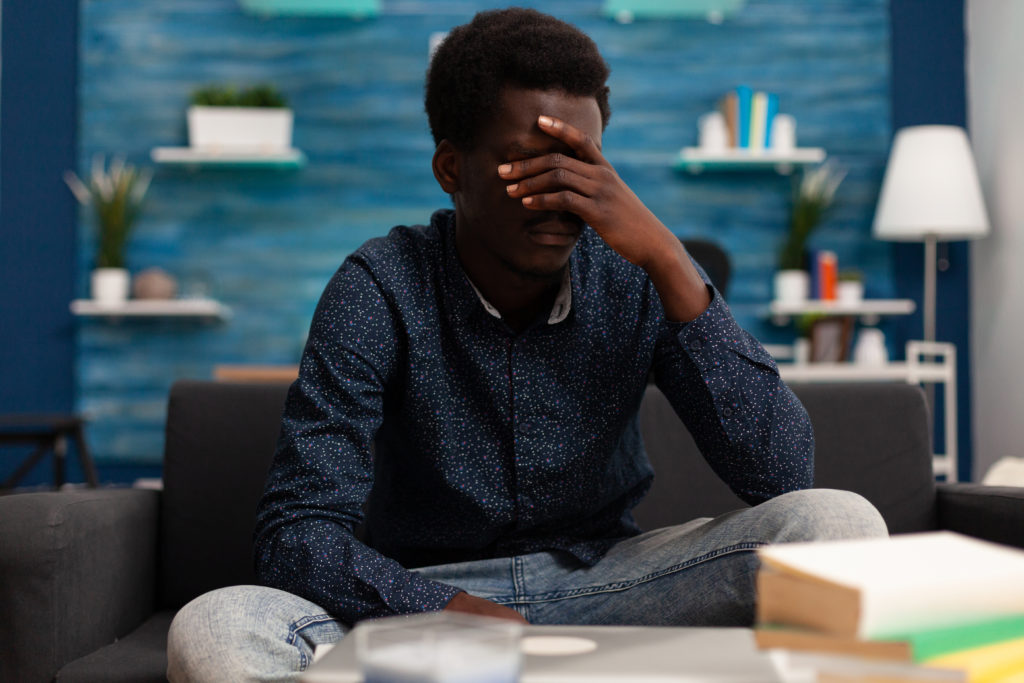What happens when your loved one’s death leaves you with more questions than answers?
Malik* (31) discovered a hidden family tradition after his dad passed away, which has left him confused. Now, he’s caught between staying true to his Muslim faith or carrying on a tradition he was never told about.
As Told To Adeyinka
My dad was a devout Muslim. The kind who made it to the mosque for every solat and never missed asalatu on Sundays. So when he passed away last November, it was shocking to discover a side he’d kept hidden from our family.
That morning, after his body arrived home from the hospital, we had to prepare for his burial later that day. In Islam, the deceased must be buried the same day if they pass away before 4 p.m.
When we brought his body home from the mortuary, my siblings and I, along with some clerics from our neighbourhood mosque, attended to his body and performed the ritual bath. He’d always mentioned that he wanted to be buried in the white cloth he wore for arafat during his pilgrimage to Mecca. The only problem was, while we knew about the cloth, we had no idea where he kept it.
I spent almost two hours searching for it in his room. I turned every wardrobe and travelling bag upside down, but we couldn’t find it. Since time was running out, the clerics suggested buying fresh white cloth.
Even after we buried him, I couldn’t shake the feeling of guilt. It wasn’t necessarily his dying wish, but knowing that he wanted to be buried in that specific cloth made it hard to accept that we couldn’t fulfil that last request. I planned to search his room again when we returned home, but I didn’t have the time. We had a lot of planning to do for the eight-day prayer, and I was in charge.
After the prayers, life in the house started to return to normal. The visitors stopped coming, the clerics reduced in number, and it was just me, my mum, and my siblings in the house.
One day, while reminiscing about my dad, my mum mentioned the white cloth and wondered where he could have kept it. It reminded me of my plan to search the room again, so I went back in.
Like the first time, my search was fruitless—until I checked one spot I missed earlier. It was an upper section in one of his wardrobes that was difficult to reach without a stool. My dad wasn’t one to climb stools to reach things, so I hadn’t thought to check there earlier.
When I finally did, I found something unexpected—a medium-sized calabash and a beaded gourd tucked into a corner. I was shocked. I muttered, “Auzubillah,” and rushed to tell my mum.
Since she couldn’t climb the stool, I took pictures to show her. We debated whether to bring the items down, but my mum decided we should consult a cleric first. When the cleric arrived, he performed some prayers before bringing down the calabash and gourd himself. I can’t remember exactly what was inside, but there was a foul smell and a lot of palm oil.
On the cleric’s advice, we took the items outside the house. My mum suggested destroying them, but the cleric insisted we contact my dad’s family first to ask questions. We called my dad’s immediate sibling, and he was immediately alarmed, demanding to know what we’d done with the calabash. When we told him it was outside, he insisted we bring it back inside. My mum refused.
That night, the house was quiet and tense. My siblings and I asked our mum if she had any idea or had ever suspected that my dad was involved in traditional practices. She swore she didn’t. They had separate rooms, so it was possible she never knew.
The next morning, my uncle arrived at our place. He explained that it was a family tradition meant for protection and that my dad should have explained it to me, being the firstborn.I was supposed to continue offering libation. My mum rebuked the idea the entire time.
My uncle eventually left, but not before pleading with us to return the calabash to its original place. None of us liked the sound of that, but even my mum’s cleric hinted that it was best to return it. It was as if everyone believed there would be consequences if we didn’t.
The calabash has been back in the wardrobe for months now, and the room feels haunted. We hardly go in there, and when we do, we’re out as quickly as possible.
My uncle keeps calling, saying strange things about how being a devout Muslim doesn’t stop me from honouring the family’s tradition. While the whole situation bothers me, I know I can’t bring myself to do anything about it. It’s a subject we all avoid in the house.
Read this next: I Couldn’t Find My Mum’s Grave, and It Broke My Heart





